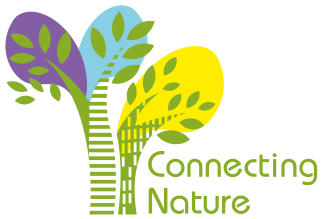Press Release
- Developers produce environmental feature for Minecraft© - the second-best selling computer game of all time
- New partnership will see UN Environment provide data for urban planning and promote worldwide use
Amsterdam, 25 June 2018 – 500 youths gathered in the iconic Amsterdam Arena football stadium this weekend, to simulate building more sustainable cities on one of the world’s most popular computer games.
The Geocraft plug-in to the renowned Minecraft© game puts urban planning decisions in the hands of players, replicating the real world in three-dimensional bricks. Yet under a new Ecocraftmodule, to be powered by UN Environment and partners, users must also weigh up environmental and other planning factors while designing the cities of tomorrow.
Real-life information can be uploaded allowing users to assess and act on the energy, waste management or transport needs of their town. Players can discover how many solar panels would be needed to meet local energy demand or decide to install wind energy instead if it does not exceed certain noise levels, for example. The costs and benefits of such decisions are represented on a scoreboard and can be used in real life urban planning.
The Geocraft plug-in was played by 500 youths in the stadium, home to the city’s Ajax football team. There, UN Environment signed a partnership with the Dutch EduGIS Foundation, the initiator behind Geocraft and Ecocraft. Under the agreement, geospatial data tools will allow thegame to map territory around the globe and simulate environmental challenges related to achieving the Sustainable Development Goals.
“Of course, it is best for children to be outside playing in nature. But if they do sit behind the computer, this game can tap their creativity to design future living spaces in harmony with the environment. The next generation of urban planners will see how much our lives depend on this balance,” said UN Environment’s Europe Director Jan Dusik at the ‘Livable Smart Cities by Design’ event held in the Dutch capital.
“Minecraft© is something I like to play in my free time, so it is fun to use in school. It is nice to build things and visualize your thoughts,” said 14-year-old gamer Dagmar.
With over 140 million sales, Minecraft© is the second-best selling computer game of all time. Geocraft is already being used to design a bike lane with and for children in Wijhe in the Netherlands. The new Ecocraft feature is free of charge for use worldwide. It is already included in the physics and geography curricula of several schools in the Netherlands, where it was developed, and is now spreading to more countries such as Poland thanks to work by UN Environment-GRID Warsaw.
Not just a game
Environmental education is vital to raising awareness on and achieving the Sustainable Development Goals. A target for citizens to participate more in sustainable urban settlement planning is included under Goal 11 on ‘sustainable cities and communities,’ while Goal 7 aims for ‘affordable and clean energy’. The plug-in also ties in with Goal 4 on ‘education and lifelong learning’ and Goal 16, which focuses on ‘good governance’.
Greater use of geospatial data can ensure that environmental factors are taking into account in urban planning to a greater extent. By 2030, 60% of the world’s population is expected to live in cities. Ecocraft simulations run by pupils in the Netherlands will soon be the inspiration for local urban decision-making.
UN Environment promotes widespread use of open source environmental data for awareness-raising and decision-making. This is in line with Principle 10 of the 1992 Rio Declaration, on the right to information, public participation and access to justice, as pillars of sound environmental governance.
Note to editors
UN Environment is the leading global voice on the environment. It provides leadership and encourages partnership in caring for the environment by inspiring, informing and enabling nations and peoples to improve their quality of life without compromising that of future generations. UN Environment works with governments, the private sector, civil society and other UN entities and international organizations across the world.
EduGIS started in 2004 as a project in which several Dutch organisations cooperated. The aim was to provide a platform for geo-information in geography education to develop spatial awareness. In 2017 the EduGIS foundation was formed. http://www.edugis.nl
For more information contact:
Alejandro Laguna, Information Officer, UN Environment, laguna@un.org, +41 229178537
Mark Grassi, Information Assistant, UN Environment, mark.grassi@un.org, +41 788750086
